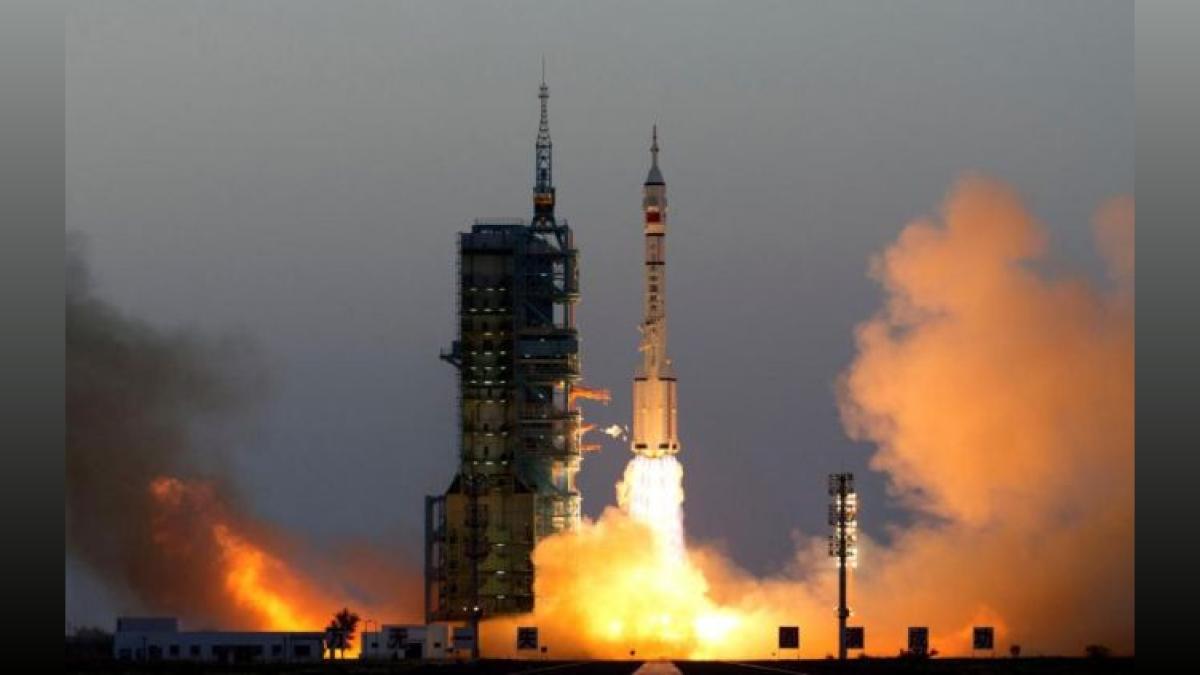FDI Easing Boosts Indian Space Startup Ecosystem
India eases FDI norms for space sector, enabling 100% foreign investment in satellite components. This move aims to attract global players and fuel startup growth in launch vehicles, satellite manufacturing, and assembly.

New Delhi, Feb 22 (PTI) The government's decision to ease Foreign Direct Investment (FDI) norms for the space sector will help fuel the efforts of the startup ecosystem in launch vehicles, satellite manufacturing, and assembly segment, according to experts.
They also said that the move would help Indian companies integrate well into global space sector supply chains, and enable innovation.
The government on Wednesday eased FDI norms and permitted 100 per cent overseas investment in making components for satellites, as part of efforts to attract overseas players and private companies into the segment.
Now, the satellite sub-sector has been divided into three different activities with defined limits for foreign investment in each such sector, according to an official statement.
Presently, FDI in the space sector is allowed up to 100 per cent in the area of satellite establishment and operations through government route only.
By changing the current policy, the government has allowed up to 74 per cent FDI under automatic route in satellite-manufacturing and operation, satellite data products, and ground and user segments.
Beyond this limit, government approval will be required in these areas for FDI, it said.
Up to 49 per cent FDI is allowed through the automatic route for launch vehicles and associated systems or subsystems, the creation of spaceports for launching and receiving spacecraft.
Beyond 49 per cent, FDI in these activities would require government approval, it added.
Further, up to 100 per cent overseas investments are permitted under the automatic route for manufacturing of components and systems/sub-systems for satellites, ground, and user segments.
Sreeram Ananthasayanam, Partner, Digital Govt and Space Tech Leader, Deloitte, said that this amendment is also expected to give a fillip to the burgeoning downstream/user segment of the space sector value chain which leverages India's natural talent in IT/analytics and needs of the growing economy of our country.
"The policy will definitely help and further fuel the efforts of our nascent start-up ecosystem in launch vehicles, satellite manufacturing and assembly, and downstream application development," he said.
Ananthasayanam added that the FDI policy with a varied approach towards various segments of the space value chain, definitely strikes a balance between the investment needs of the emerging Indian private space ecosystem, the strategic autonomy of the country, and the overall ambition of developing indigenous capabilities across the space value chain.
Mayank Arora, Director- Regulatory, Nangia Andersen India, said that collaborations of Indian space startups with foreign players and the potential technology transfer going forward will help establish an ecosystem in the sector.
The decision assumes significance as demand for satellite components and parts is growing because almost all major space agencies are looking to ramp up the production of heavy-lift launch vehicles.
As per estimates, over 200 startups are engaged in the sector.
According to industry estimates, the private space sector in India accounts for about two per cent of the global space economy and is projected to grow to about 10 per cent by 2040.
They also said that the move would help Indian companies integrate well into global space sector supply chains, and enable innovation.
The government on Wednesday eased FDI norms and permitted 100 per cent overseas investment in making components for satellites, as part of efforts to attract overseas players and private companies into the segment.
Now, the satellite sub-sector has been divided into three different activities with defined limits for foreign investment in each such sector, according to an official statement.
Presently, FDI in the space sector is allowed up to 100 per cent in the area of satellite establishment and operations through government route only.
By changing the current policy, the government has allowed up to 74 per cent FDI under automatic route in satellite-manufacturing and operation, satellite data products, and ground and user segments.
Beyond this limit, government approval will be required in these areas for FDI, it said.
Up to 49 per cent FDI is allowed through the automatic route for launch vehicles and associated systems or subsystems, the creation of spaceports for launching and receiving spacecraft.
Beyond 49 per cent, FDI in these activities would require government approval, it added.
Further, up to 100 per cent overseas investments are permitted under the automatic route for manufacturing of components and systems/sub-systems for satellites, ground, and user segments.
Sreeram Ananthasayanam, Partner, Digital Govt and Space Tech Leader, Deloitte, said that this amendment is also expected to give a fillip to the burgeoning downstream/user segment of the space sector value chain which leverages India's natural talent in IT/analytics and needs of the growing economy of our country.
"The policy will definitely help and further fuel the efforts of our nascent start-up ecosystem in launch vehicles, satellite manufacturing and assembly, and downstream application development," he said.
Ananthasayanam added that the FDI policy with a varied approach towards various segments of the space value chain, definitely strikes a balance between the investment needs of the emerging Indian private space ecosystem, the strategic autonomy of the country, and the overall ambition of developing indigenous capabilities across the space value chain.
Mayank Arora, Director- Regulatory, Nangia Andersen India, said that collaborations of Indian space startups with foreign players and the potential technology transfer going forward will help establish an ecosystem in the sector.
The decision assumes significance as demand for satellite components and parts is growing because almost all major space agencies are looking to ramp up the production of heavy-lift launch vehicles.
As per estimates, over 200 startups are engaged in the sector.
According to industry estimates, the private space sector in India accounts for about two per cent of the global space economy and is projected to grow to about 10 per cent by 2040.
You May Like To Read
TODAY'S MOST TRADED COMPANIES
- Company Name
- Price
- Volume
- Vodafone-Idea-L
- 11.65 (+ 3.56)
- 106772451
- Alstone-Textiles
- 0.28 ( -3.45)
- 44187760
- Mangalam-Industrial
- 0.88 ( -2.22)
- 39177573
- Sunshine-Capital
- 0.27 (+ 3.85)
- 35956340
- GMR-Airports
- 104.40 (+ 6.37)
- 30453005





